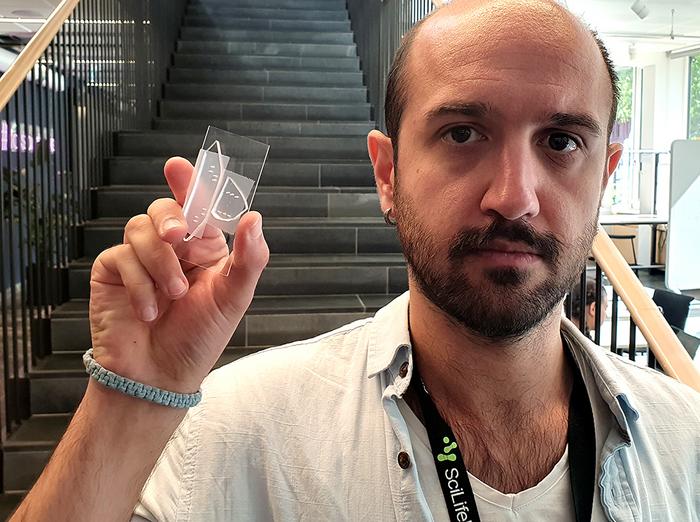Researchers demonstrated a way to speed up—and potentially scale up—the process for separating particles in fluids, which can be used for studying microplastics in drinking water or even analyzing cancer cells from blood.

Credit: David Callahan – KTH Royal Institute of Technology
Researchers demonstrated a way to speed up—and potentially scale up—the process for separating particles in fluids, which can be used for studying microplastics in drinking water or even analyzing cancer cells from blood.
Reporting in Nature Microsystems & Nanoengineering, a team led by researchers at KTH Royal Institute of Technology described a speedier and more precise method of elasto-inertial microfluidics, a process that involves controlling the movement of tiny particles in fluids by using both the elastic properties of the fluid and the forces that come into play when the fluid moves.
Selim Tanriverdi, a PhD student at KTH and lead author of the study, says the improved technique offers a diverse range of potential uses in medical testing, environmental monitoring and manufacturing. The method can help quickly sort cells or other particles in blood samples, remove pollutants in water to analyze, or enable development of better materials by separating different components more efficiently, he says.
The microfluidic device is comprised of specially engineered channels that can handle relatively large amounts of fluid quickly, making it perfect for applications requiring fast and continuous separation of particles, Tanriverdi says. Within these channels particles can be sorted and lined up — a crucial step crucial for separating different types of particles.
The improved accuracy is enabled by using special fluids designed specifically with high polymer concentrations. This imparts a viscoelastic character that can push like water and spring back, in a way comparable to an egg white. By combining these forces, particles can be guided to move in specific ways.
“We showed how the sample throughput can be increased within our microfluidic channel,” he says. “This would lower the process time for blood analysis, which is crucial for a patient.”
The study found that larger particles were easier to control and remained focused even when the fluid flow increased. Smaller particles needed optimal flow rates to stay in line but showed improved control under the right conditions.
Development of the method has its roots in a project to develop technologies for monitoring micro- and nano- plastics in water, which was funded by the European Commission. Tanriverdi had served as a Marie Skłodowska-Curie researcher on the project, titled MONPLAS.
Journal
Microsystems & Nanoengineering
Method of Research
Observational study
Subject of Research
Not applicable
Article Title
Elasto-inertial focusing and particle migration in high aspect ratio microchannels for high-throughput separation
Article Publication Date
25-Jun-2024
COI Statement
The authors declare no competing interests.



